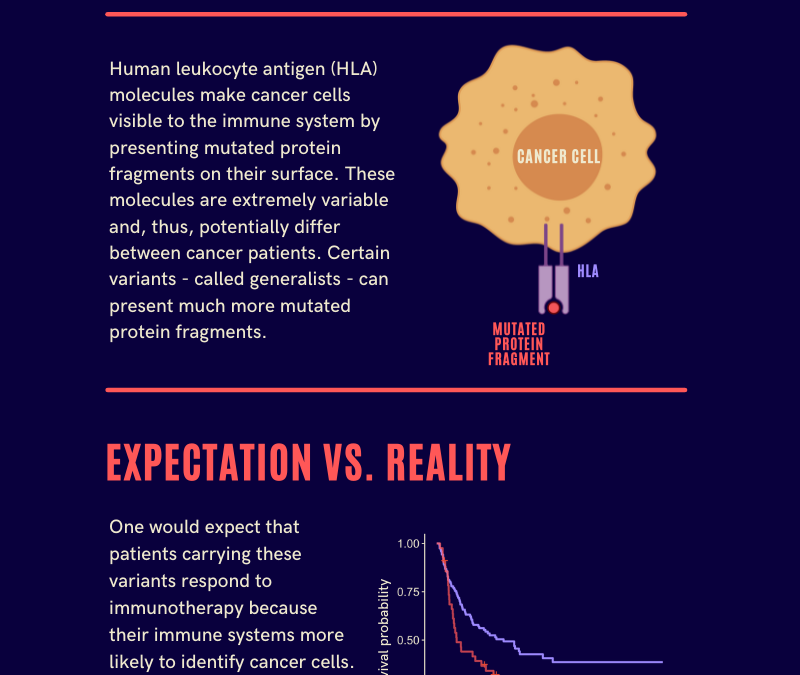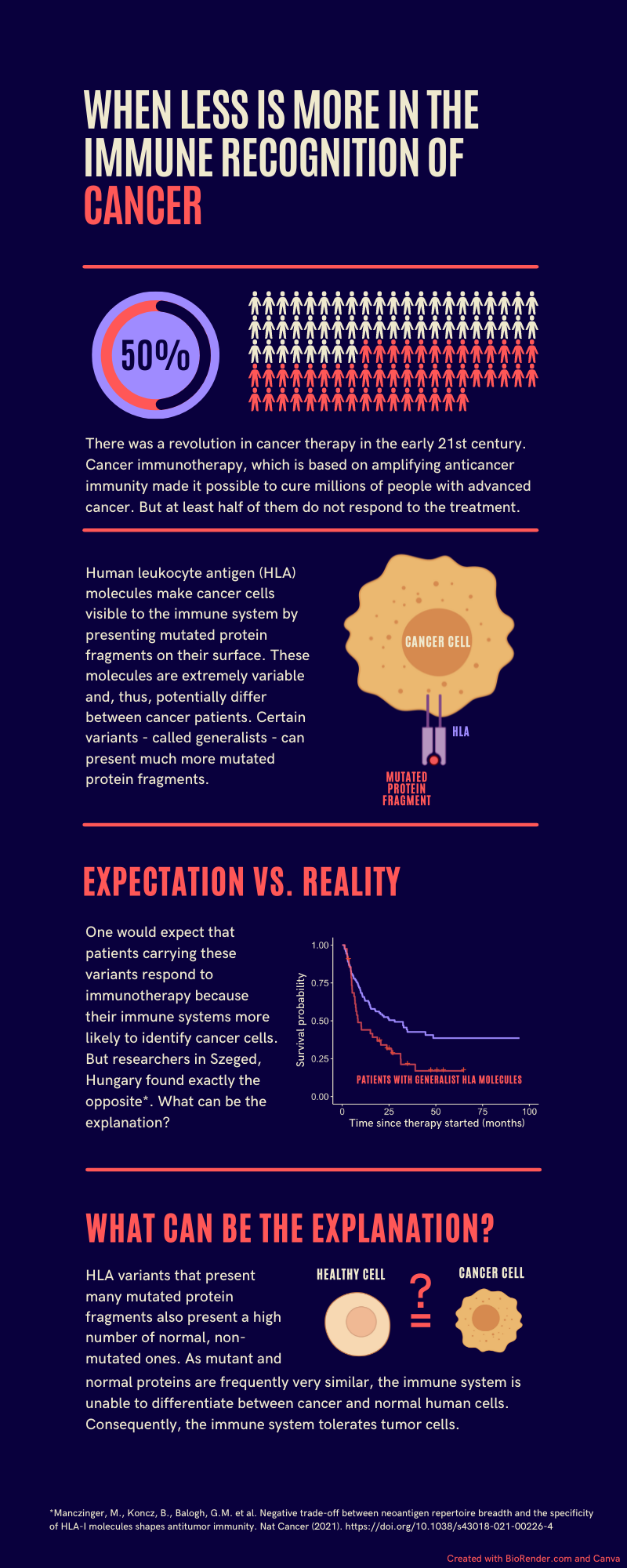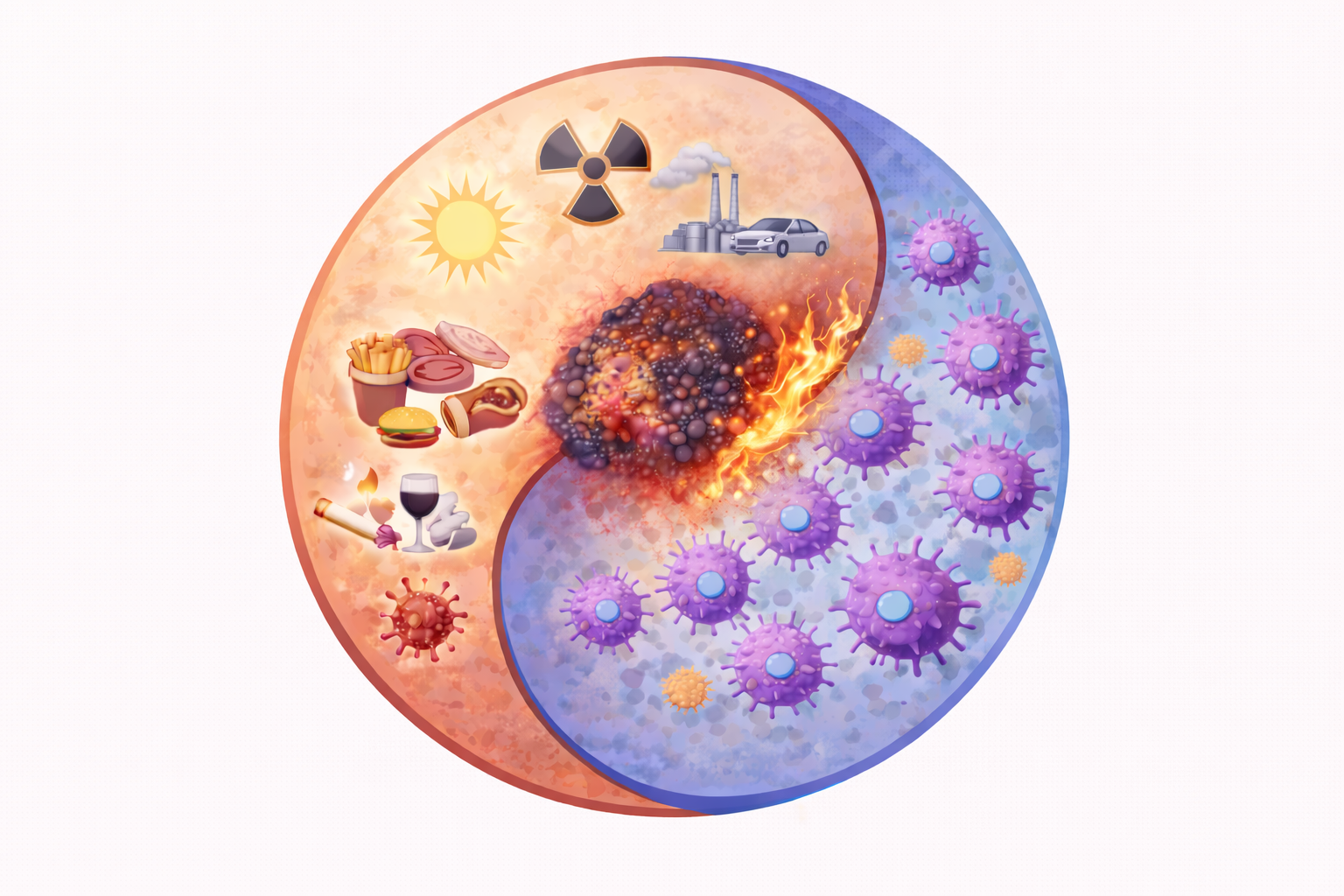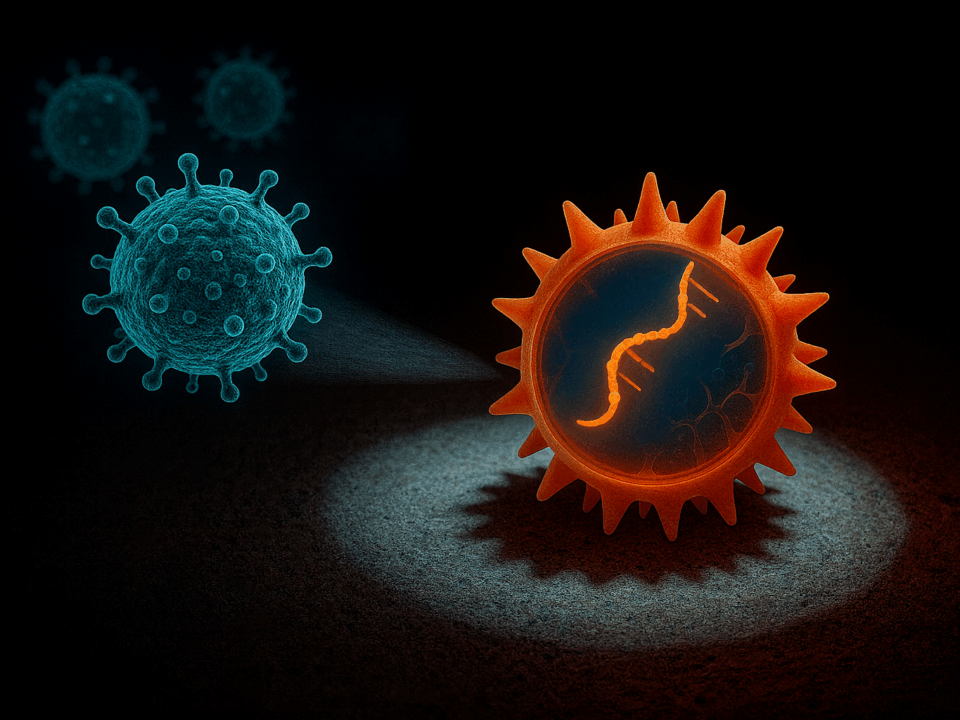
Negative trade-off between neoantigen repertoire breadth and the specificity of HLA-I molecules shapes antitumor immunity
Máté Manczinger, Balázs Koncz, Gergő Mihály Balogh, Benjamin Tamás Papp, Leó Asztalos, Lajos Kemény, Balázs Papp & Csaba Pál
Human leukocyte antigen class I (HLA-I) genes shape our immune response against pathogens and cancer. Certain HLA-I variants can bind a wider range of peptides than others, a feature that could be favorable against a range of viral diseases. However, the implications of this phenomenon on cancer immune response are unknown. Here we quantified peptide repertoire breadth (or promiscuity) of a representative set of HLA-I alleles and found that patients with cancer who were carrying HLA-I alleles with high peptide-binding promiscuity have significantly worse prognosis after immune checkpoint inhibition. This can be explained by a reduced capacity of the immune system to discriminate tumor neopeptides from self-peptides when patients carry highly promiscuous HLA-I variants, shifting the regulation of tumor-infiltrating T cells from activation to tolerance. In summary, HLA-I peptide-binding specificity shapes neopeptide immunogenicity and the self-immunopeptidome repertoire in an antagonistic manner, and could underlie a negative trade-off between antitumor immunity and genetic susceptibility to viral infections.
Full version of the publication





